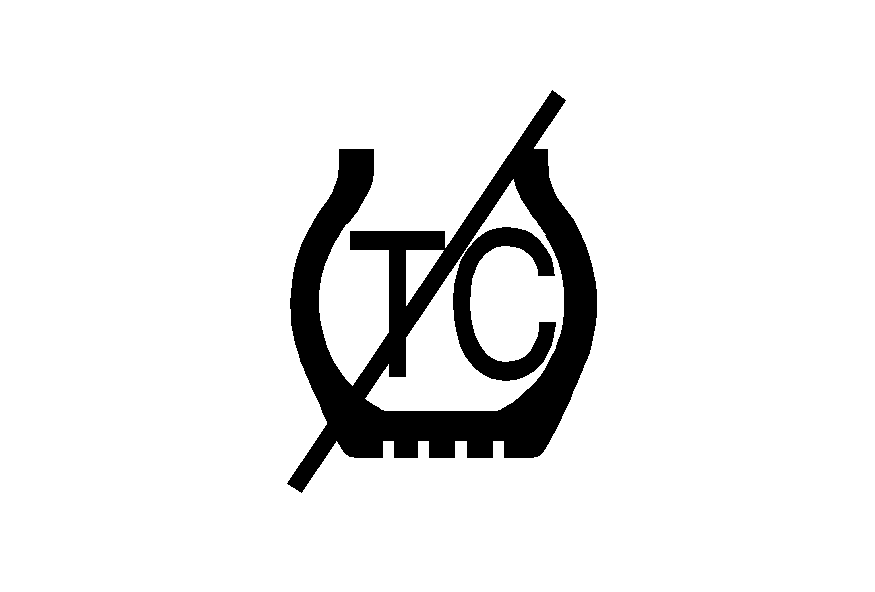Your vehicle may have a Traction Control System (TCS) that limits wheel spin. This is especially useful in slippery road conditions. The system operates only if it senses that one or both of the rear wheels are spinning or beginning to lose traction. When this happens, the system reduces engine power and may also upshift the transmission to limit wheel spin.
You may feel or hear the system working, but this is normal.

The TCS button is located on your instrument panel. Press this button to turn the TCS off and on.
When the traction control system is turned off, an indicator light on the button will illuminate.
If your vehicle is in cruise control when the traction control system begins to limit wheel spin, the cruise control will automatically disengage. When road conditions allow you to safely use it again, you may re-engage the cruise control. See Cruise Control .
TCS operates in all transmission shift lever positions. But the system can upshift the transmission only as high as the shift lever position you have chosen, so you should use the lower gears only when necessary. See Automatic Transmission Operation and/or Manual Transmission Operation for more information.
If there is a problem with TCS, TRACTION FAULT will be displayed on your Driver Information Center (DIC). See DIC Warnings and Messages for more information.
When this warning is displayed, the system will not limit wheel spin. Adjust your driving accordingly.
To limit wheel spin, especially in slippery road conditions, you should always leave TCS on. But you can turn the system off if you ever need to. You should turn the system off if your vehicle ever gets stuck in sand, mud or snow and rocking the vehicle is required. See Rocking Your Vehicle to Get It Out and If Your Vehicle is Stuck in Sand, Mud, Ice, or Snow for more information.
Adding non-GM accessories can affect your vehicle's performance. See Accessories and Modifications for more information.
